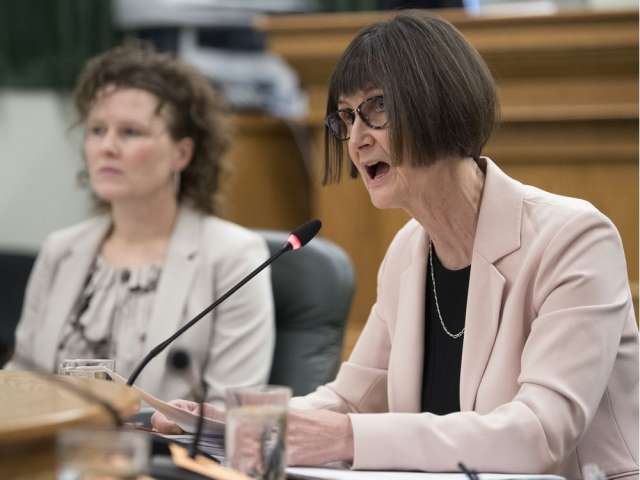
Audits of the Saskatchewan Liquor and Gaming Authority’s (SLGA) policies for two types of inspection/enforcement of private business uncovered inconsistencies in enforcement, the provincial auditor says.
The auditor looked at how SLGA regulates recreational cannabis and table alcohol sales in two separate audits, and found similar concerns across both. The alcohol audit was a follow-up from previous investigations, while the cannabis audit was new for the agency.
The auditor’s office found that the SLGA was still in its start-up phase of regulating recreational cannabis, and was focusing on education over enforcement.
“Moving past the start-up phase is essential for effective regulation,” the auditor’s report said.
The auditor’s report said SLGA did not always complete monthly inspections, and that it didn’t set out expected timeframes to review and approve sanctions on cannabis retailers.
“Effective regulatory processes help prevent the sale of legal recreational cannabis to youth, keep profits from cannabis sales in the regulated market and protect public health and safety by allowing adults to access legal cannabis,” the auditor’s report reads.
The report says periodic inspections are the main way to determine whether retailers and wholesalers are following the rules. The expectation is for inspectors to complete inspections of retailers and wholesalers at least once a month.
The auditor found that inspections are effective, but that they aren’t monitored for timeliness, and that the SLGA, as of the audit, hadn’t finalized its guidance for addressing non-compliance and when to begin taking enforcement actions.
Draft guidelines designed to lay out how to deal with non-compliance, the auditor said, were appropriate and clear, but didn’t set out expected timeframes for reviewing and approving sanctions for violating cannabis retail and wholesale regulations.
SLGA told the auditor’s office that they plan to finalize and approve their guidelines by August 31 of this year, but had not set a date for when it will transition from education to enforcement for non-compliance.
The auditor also found that 14 instances where inspectors had found non-compliance and drafted a sanctions letter, but the authority hadn’t finalized what action to take. One of the draft sanctions related to an incident where the retailer hadn’t asked customers for identification at the time of sale to verify age.
“By not reviewing and approving sanctions timely, the authority increases the risk of cannabis permittees continued to not comply with the authority’s operating requirements,” the auditor said.
“This may increase risk to public safety.”
The auditor further found that the SLGA hasn’t yet implemented technology to enable it to electronically tracked non-compliance and actions taken to address the lack of compliance, though that technology is planned for implementation this fiscal year.
“What we’re finding is they’re going out and they’re doing their inspections. The investigators would write up the results and suggest a sanction,” auditor Judy Ferguson said during a press conference Tuesday.
“What we found is that those draft sanction letters weren’t finalized, so the communication didn’t go out to those permittees in terms of what they needed to do differently. We were finding delays of up to two to three months in getting those letters out the door. What we’re saying is you need to move to that enforcement action to make sure you are properly regulated.”
The follow-up audit into inspections made of on-table liquor sales found that of the three outstanding recommendations from the first follow-up audit, one had been implemented and two partially implemented.
The auditor found that the SLGA completes reports on non-compliance, but does not perform a written analysis of key trends of non-compliance with liquor sale requirements.
“Without analysis on key trends, the Authority may not know whether its liquor regulatory processes work, if it applies its regulatory processes fairly and consistently, or if commercial permittee compliance is getting better or worse,” the auditor’s report said. “This type of analysis can also assist the Authority in planning their resources for the next fiscal year.”
The report also found that the SLGA is not consistently monitoring the completion of inspections.
“There’s definitely overlap” in the cannabis and liquor inspection findings, Ferguson said in an interview with the Herald.
“The common findings are really on that inspections piece. In both of them, they had an inspection schedule and they weren’t keeping to that inspection schedule. We must admit, we were a little surprised on the cannabis one.”
That’s because, Ferguson, their hope as an audit office is that agencies learn from audits and implement those lessons into other areas of their operations.
“In this case, it hasn’t quite occurred. We’ll continue looking at it, and help move them along.”

